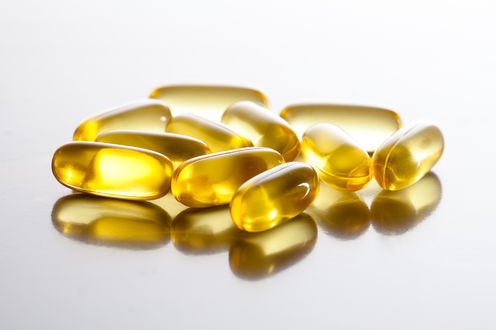
Two out of three Australians regularly use complementary medicines, which constitute a A$3.5 billion domestic market. But the industry’s marketing strategies are a source of ongoing controversy and pose a significant challenge for regulators.
Products containing containing krill oil provide a good example of the kinds of extravagant claims made by supplement manufacturers. The oil is derived from a tiny, shrimp-like crustacean and, like fish oil, contains omega-3 fatty acids.
Company claims include krill oil’s capacity to “relieve arthritic symptoms [of osteoarthritis and rheumatoid arthritis] within a short period of 7 to 14 days”, as well as its “superior absorption” and the curiously ambiguous “9x [strength]” of the less expensive fish oil. Such claims are found on product packs and manufacturers’ websites, as well as the websites of third-party stockists.
Few companies provide links to research supporting such claims. What research does exist is not easily accessible to most consumers, who, at any rate, can rarely assess its validity.
Claims and science
The widely used claim that krill oil relieves the symptoms of arthritis within seven to 14 days appears to be based on a small 2007 study. The research focused on one specific formulation of krill oil, produced by a Canadian company. Possible conflicts of interest, including the source of funding for the study, are notably absent from the paper.
The study recruited 90 people with a confirmed diagnosis of one or more of cardiovascular disease, rheumatoid arthritis (ten people) and osteoarthritis (30 people). They were compared to placebo groups of 26 and 12. Three patients pulled out of the trial before completion, and 12 didn’t have a diagnosis of either osteoarthritis or rheumatoid arthritis.
While some results at seven and 14 days were deemed statistically significant, the meagre number of people involved raises questions about the clinical significance of its conclusions.

Regardless of this and other details of the report that suggest only people with very severe cases of illness were included, the findings of this early and isolated study can, at best, be considered preliminary. And a search of a comprehensive research database found no evidence that the results had been replicated independently.
The claim of krill oil having “superior absorption” is also dubious and not supported by research evidence. A 2014 review of krill oil absorption actually concluded there was no evidence for krill oil being more easily absorbed by the human body.
Regulatory challenges
Companies that market complementary medicines in Australia are legally required to comply with standards set by the Therapeutic Goods Administration (TGA). These standards relate to both the quality of the product and advertising claims.
But manufacturers self-certify their compliance with TGA requirements. Limited, as well as poorly targeted, post-market surveillance of complementary products means they can contravene standards without fear of reprisal. Then there’s the lack of effective penalties to deter companies from breaching TGA regulations.
In May 2013, the Therapeutic Products Advertising Complaint Resolution Panel determined claims such as “9x stronger” and “reduce[s] pain, stiffness and inflammation caused by arthritis, within a short period of 7 to 14 days” breached a number of sections of the Therapeutic Goods Advertising Code 2007.
It said such statements:
ought to be supported by a wide body of scientific evidence involving a number of independent studies.
But the claims continue to be made, even by companies asked to withdraw them.
Numerous reports over the last decade have recommended that the lack of effective penalties for offending companies be redressed. But it seems unlikely any changes will be implemented any time soon as both the industry and government support a deregulation agenda.
Meanwhile, consumers continue to be ripped off by products that cannot deliver on the promises they make.
Dr Harvey has accepted travel expenses only to talk about problems of complementary medicine regulation to pharmaceutical companies and industry associations. He has also been paid travel expenses and sitting fees for his involvement with government inquiries and working groups concerning the promotion and regulation of complementary medicines. He is regarded by industry as a serial complainant
This article is based on a Monash Summer Research Project that Aaron Kovacs completed under Dr Harvey’s supervision.
This article is based on a Monash Summer Research Project that Grace Jackel completed under Dr Harvey’s supervision.
